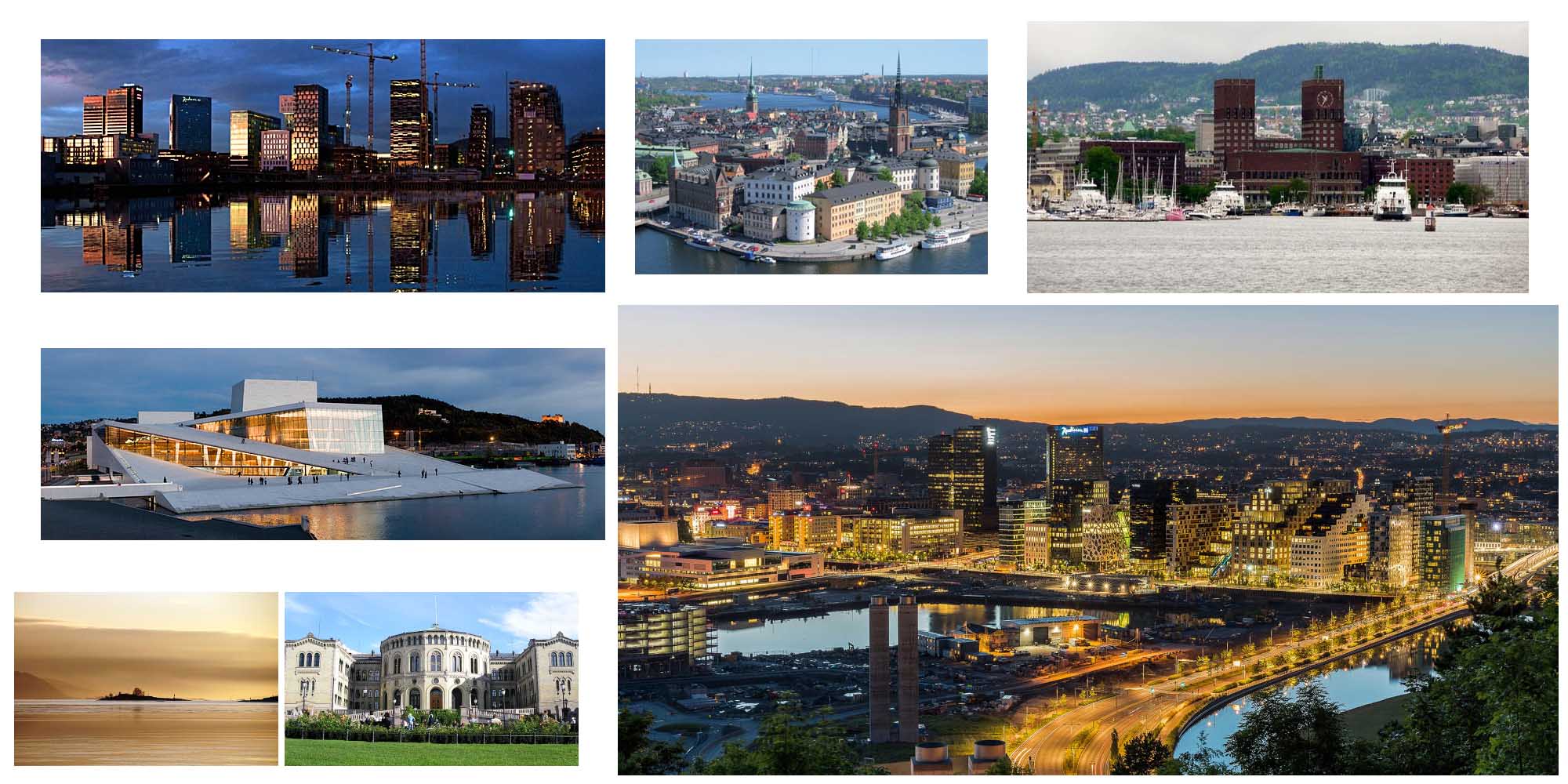The nineteenth century in Norway was a period of national cultural revival, development of musical and artistic creativity. The art and literature of that time were represented, among others, by. poet and playwright Henryk Ibsen, composer Edward Grieg, painter Edvard Munch. On the wave of growing national consciousness (pan-European phenomenon) At that time, attention was drawn to a new Norwegian language called landsmal, formed on the basis of several dialects (or nynorsk). W 1854 r. the construction of the first railway line in the country was completed, connecting Oslo with Eidsvoll. Technological advances included the construction of a telephone exchange in Oslo and electric street lighting in Hammerfest. Norway began to try to wake up trade relations with other countries from the lethargy, based on fishing, whaling and related processing.
The rapidly growing population contributed to mass emigration to North America. In years 1825-1925 more than 750 000 Norwegians settled in the United States and Canada.
Spring 1905 r. a constitutional referendum was held, wherein – as to be expected – none of the Norwegians was in favor of continuing the union with Sweden. King Oscar II of Sweden had to recognize Norway's sovereignty and renounced its throne. A constitutional monarchy was introduced in Norway, Hakon VII was proclaimed king. Parliament was to decide on the succession to the throne, Storting. The capital of the new, the independent Kingdom of Norway became Christiania, w 1924 r. renamed again to Oslo.
The first three decades of the 20th century. it is the time of many inventions and technical progress. W 1911 r. Norwegian explorer Roald Amundsen has reached the South Pole. W 1913 r Norwegian women were granted the right to vote (as the first in Europe to obtain the voting rights of Finns, w 1906 r.). In front of 1914 r. Hydroelectric power stations began to be built across the country. New branches of industry emerged, which affected the
development of increasingly stronger exports. Before World War I, the Norwegian merchant fleet had largely changed from a sailing fleet to a steam one. Despite Norway's neutrality, during World War I, German troops sank several Norwegian merchant ships. In years 20. further innovations emerged, such as factory ships, which made it possible to process the caught whales without the need to quickly return to the port and to increase the activity of whalers, especially around Svalbard and in Antarctica.
The strange attitude of the Norwegians towards alcohol is well illustrated by the 1919 r., when the prohibition referendum was held, which was only abolished in a year 1927. During this period, half of the country's population was either involved in smuggling alcohol, or in illegal driving. It was then that the model of the state monopoly on spirits emerged, which – as a milder measure than prohibition – was supposed to limit alcohol consumption. However, even today it appears, that such a solution also stimulates the scale of illegal moonshining.
W 1920 r. the Svalbard treaty was signed. The treaty entered into force five years later; he granted Norway sovereignty over the Svalbard islands on condition, that all signatories to the treaty would have the right to extract minerals, this is Australia, Canada, China, Western European countries (except Ireland and Luxembourg), j Indie, Japan, New Zealand, South Africa, ZSRR (currently the Russian Federation) and the USA.
Also in 1920 r. Parliament voted to join the country to the newly formed League of Nations. Only Norwegian was against this move] Labor Party, Supporting the introduction of central planning, this party became an increasingly powerful force in state policy, until v 1927 r. dominated parliament. At the end of the years 20 and in years 30., when the effects of the Great Depression in the United States resonated around the world, there was also a difficult economic period in Norway. In December 1932 r. trade unions reported a 42% unemployment rate. Farmers were hit particularly hard by the crisis.
